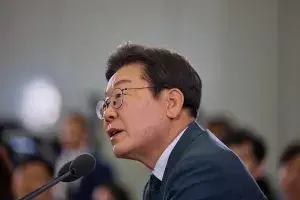What’s being said — the core of the request 🕊️
Foreign Minister Cho Hyun stated in an interview that South Korea seeks Trump’s leadership to pull North Korea to the dialogue table and to moderate military tensions. AP News+1
Cho emphasized that President Lee is intentionally stepping back from the “driver’s seat” role. He asked Trump to take that responsibility, while Seoul positions itself as a “pacemaker,” helping to set tempo rather than controlling direction. AP News+2AP News+2
Trump reportedly “welcomed” the request and expressed willingness to reengage with North Korea. AP News+1
This move signals an ambition in Seoul to re-energize diplomacy after years of deadlock and skepticism.
Why now — shifts in strategy and urgency ⏳
This appeal comes at a moment of rising regional volatility:
North Korea has recently reaffirmed its commitment to strengthening its nuclear arsenal, emphasizing defense, deterrence, and sovereignty. Reuters
South Korean President Lee has positioned himself as a more diplomatically forward leader, pledging to lower tensions on the peninsula. Reuters
The geopolitical backdrop — including shifting U.S. foreign policy, tensions with China, and global uncertainty — makes the stakes for a breakthrough higher than ever.
In short: both urgency and opportunity converge now.
Challenges, doubts & possible dynamics 🧩
Trust deficits: North Korea has long balked at external pressure, especially from the U.S. It may view such interventions skeptically.
Preconditions and red lines: Pyongyang has repeatedly insisted it will not surrender its nuclear program as a precondition for talks. The Guardian+1
Expectations management: If Trump steps in, what authority will he have? How will any agreement be framed so all parties (South, North, U.S.) feel fairly treated?
Timing & optics: With Trump expected to visit South Korea for the upcoming APEC summit, speculation is high about a potential meeting with Kim Jong Un. AP News+1
What to watch next 👀
Will there be confirmation from North Korea — either via state media or official statements — accepting or rejecting this peacemaker role?
Will a bilateral meeting (Trump–Kim) or trilateral engagement be arranged during the APEC summit or at other venues?
How will other key players — China, Japan, the U.S. administration — respond or influence the process?
What safeguards or frameworks will be proposed for negotiation (nuclear freeze, phased steps, inspection regimes, security guarantees)?

Comments 0
No comments yet. Be the first to share your thoughts!
Leave a comment
Share your thoughts. Your email will not be published.